Indigenous Governance Database
customary law
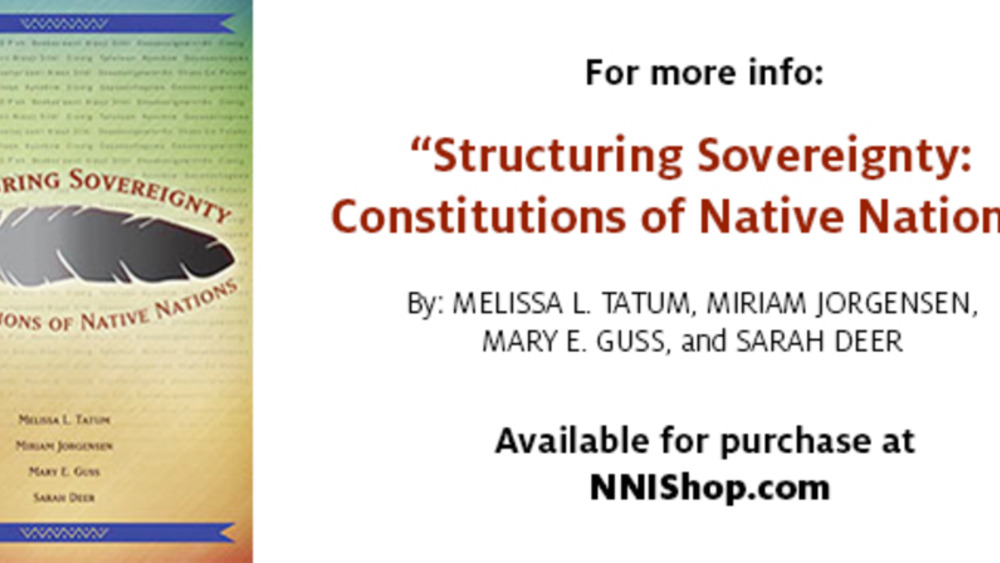
Yurok Tribe Constitution
Location: California Population: 6,000 Date of Constitution: 1993
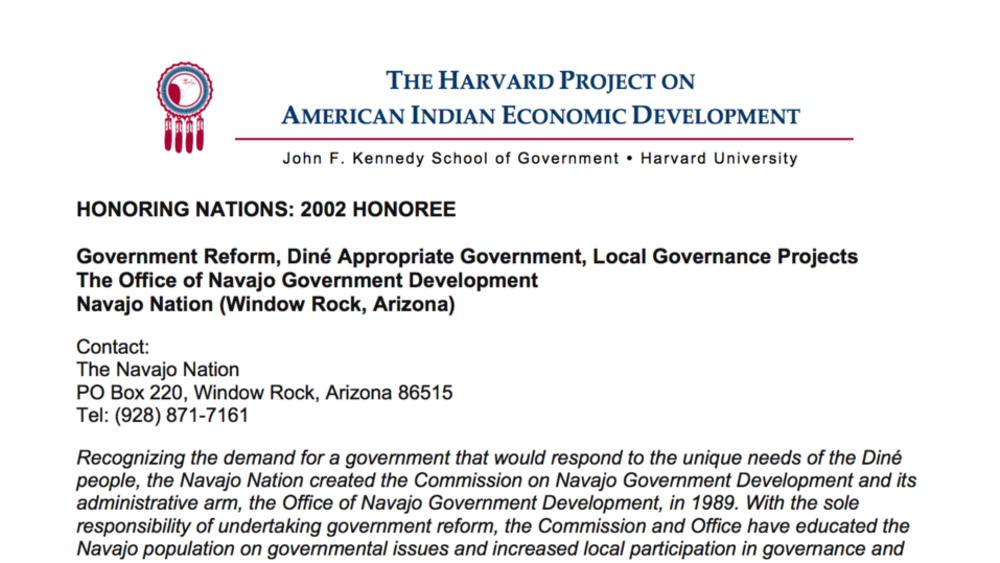
Diné (Navajo) Local Governance Projects
Formed in 1989 by the Navajo Nation Council, the Office of Navajo Government Development works with the Diné people and their elected leaders to conduct government reform, foster the incorporation of Navajo culture and tradition into the Navajo Nation Code, and facilitate the transference of…
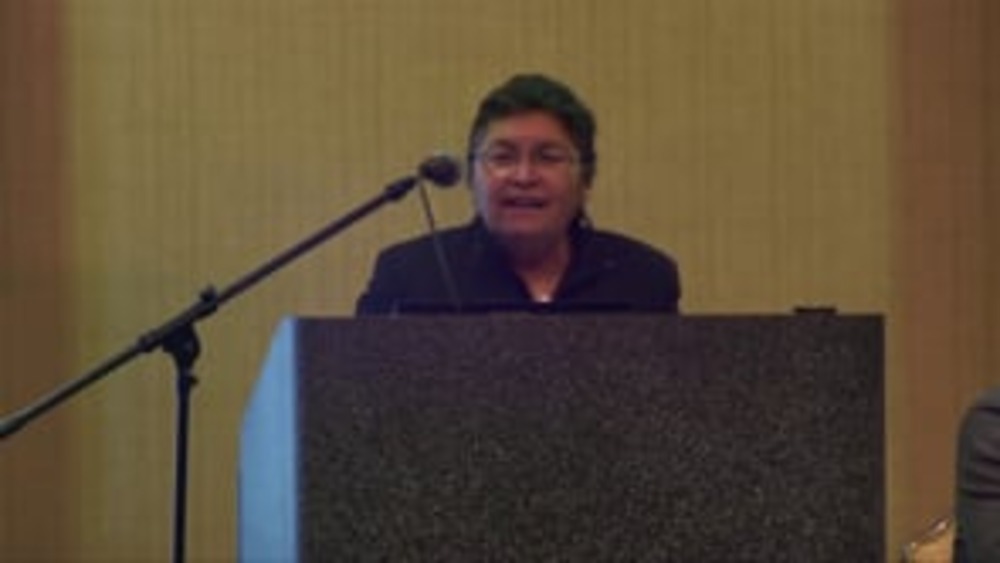
Sharon Day: Disenrollment: Contemplating A More Inclusive Approach
Sharon Day (Bois Forte Band of Chippewa) makes a compelling case for Native nations to abandon externally imposed criteria for citizenship that continue to cause internal divisions within Native nations and communities and instead return to Indigenous cultural values and teachings predicated on…
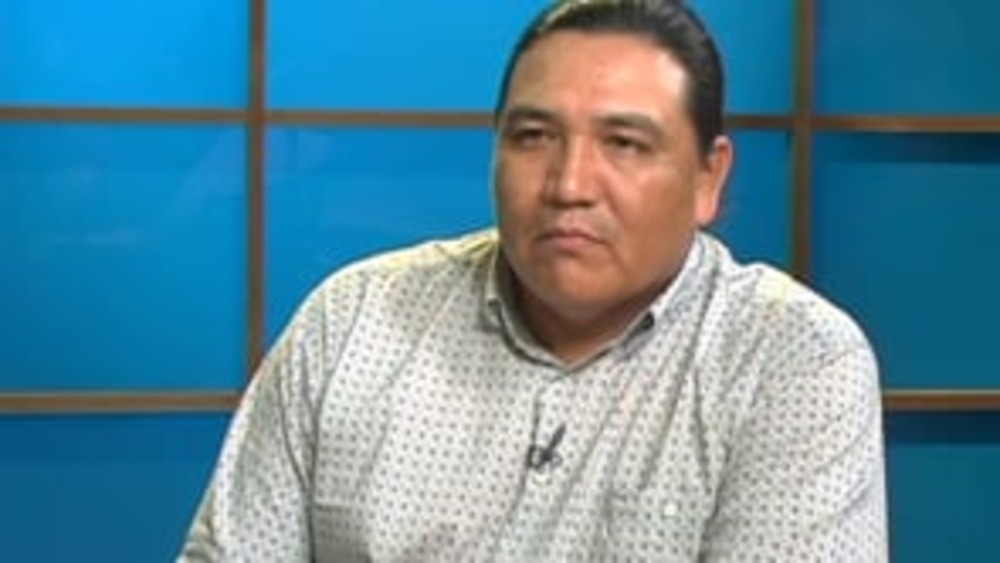
Leroy LaPlante, Jr.: Effective Bureaucracies and Independent Justice Systems: Key to Nation Building
In this informative interview with NNI's Ian Record, Leroy LaPlante, Jr., former chief administrative officer with the Cheyenne River Sioux Tribe and a former tribal judge, offers his thoughts on what Native nation bureaucracies and justice systems need to have and need to do in order to support…
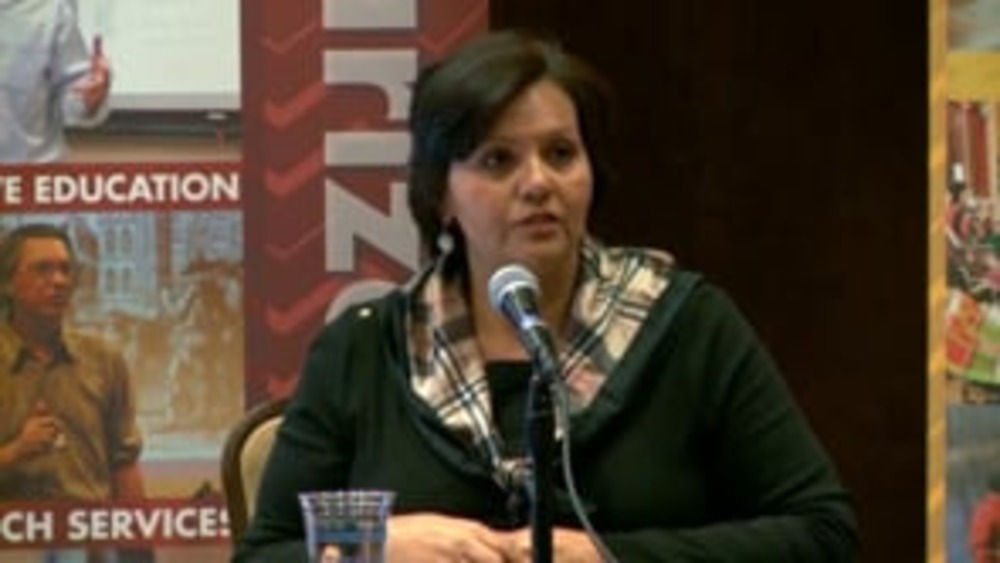
Rae Nell Vaughn: So What's So Important About Tribal Courts?
Rae Nell Vaughn, former Chief Justice of the Mississippi Choctaw Supreme Court, discusses how justice systems are critical to Native nations' exercise of sovereignty, and sets out some key things that those systems need to have in place in order to administer justice fairly and effectively on…

NNI Indigenous Leadership Fellow: Rae Nell Vaughn (Part 1)
Rae Nell Vaughn, former Chief Justice of the Mississippi Choctaw Supreme Court, discusses the critical role that justice systems play in the rebuilding of Native nations and shares how the Mississippi Band of Choctaw Indians has worked to develop its justice system to reflect and promote its…
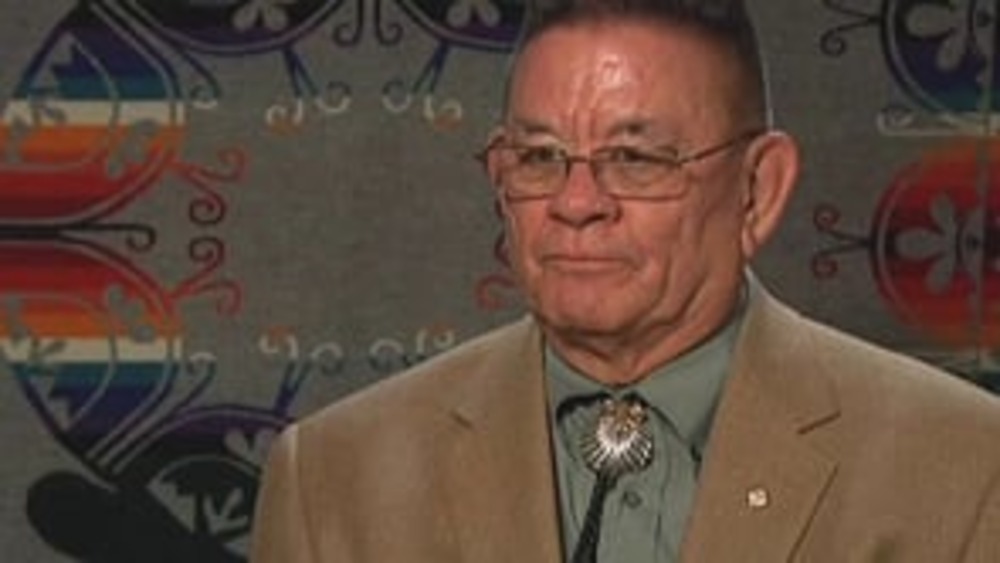
From the Rebuilding Native Nations Course Series: "What Strong, Independent and Legitimate Justice Systems Require"
Native leaders and scholars discuss what Native nations need to do to create strong, independent and culturally legimate justice systems.
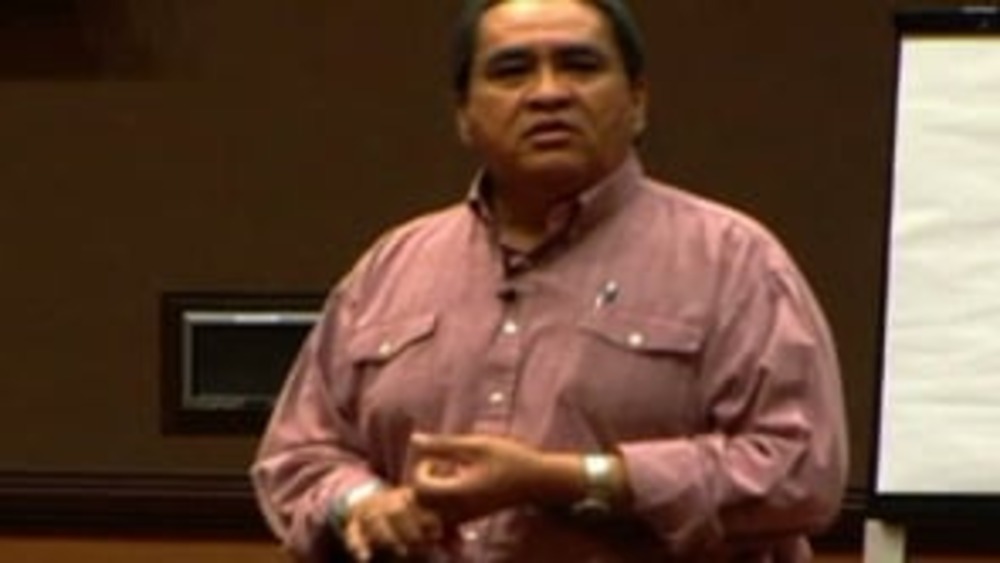
From the Rebuilding Native Nations Course Series: "The Importance of Cultural Match"
Dr. Manley Begay provides an overview of cultural match, which the Native Nations Institute and the Harvard Project have identified as one of the five keys to successful Native nation building.
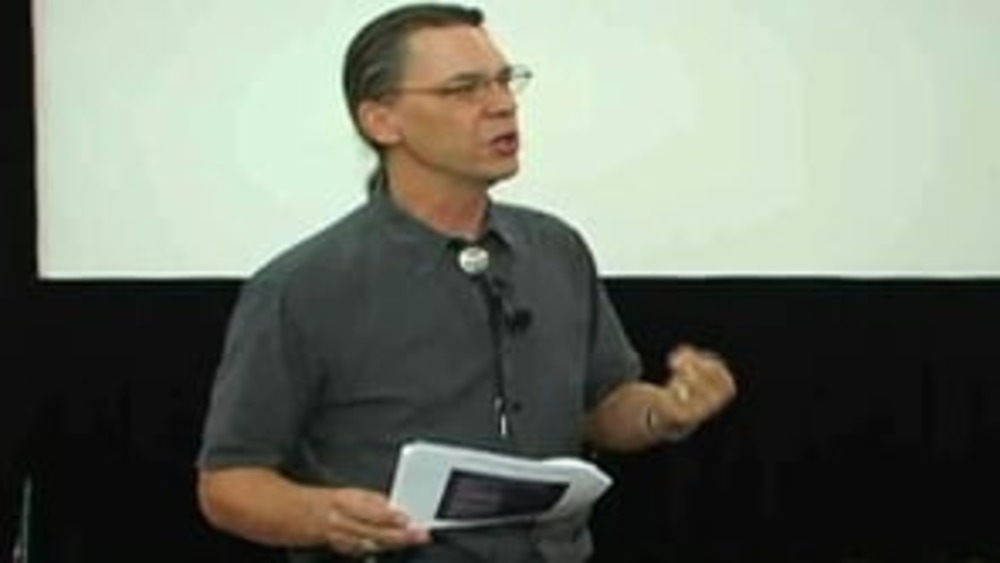
From the Rebuilding Native Nations Course Series: "Justice Systems and Cultural Match"
Professor Robert A. Williams, Jr. argues that Native nations can reintegrate their unique cultures and common law into their governance systems, specifically their systems for resolving disputes and providing justice to their citizens and others.
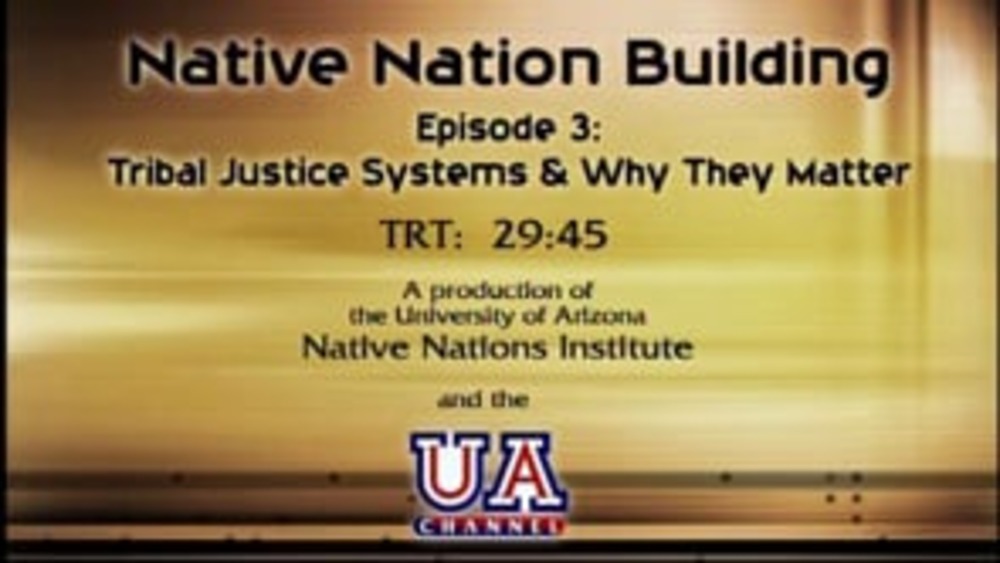
Native Nation Building TV: "Why the Rule of Law and Tribal Justice Systems Matter"
Guests Robert A. Williams, Jr. and Robert Yazzie discuss the importance of having sound rules of law and justice systems, and examine their implications for effective governance and sustainable economic development. They explore these issues and their role in creating a productive environment that…
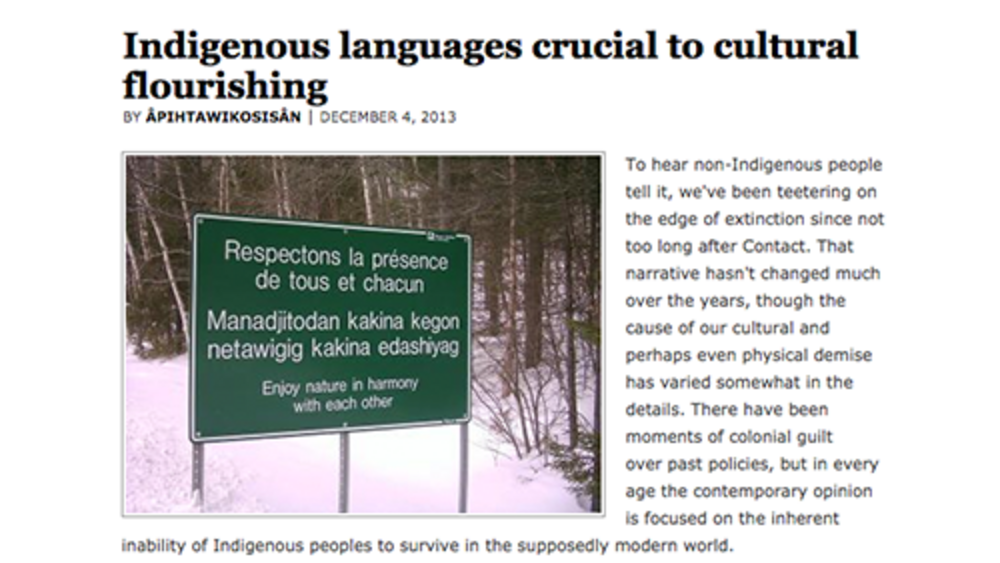
Indigenous languages crucial to cultural flourishing
I believe our languages to be so central to who we are as Indigenous peoples, that I cannot discuss our present or our future without reference to languages. The oppression we have faced, and continue to face, does not define us in the way our languages do. Our resilience, and the fact that we have…
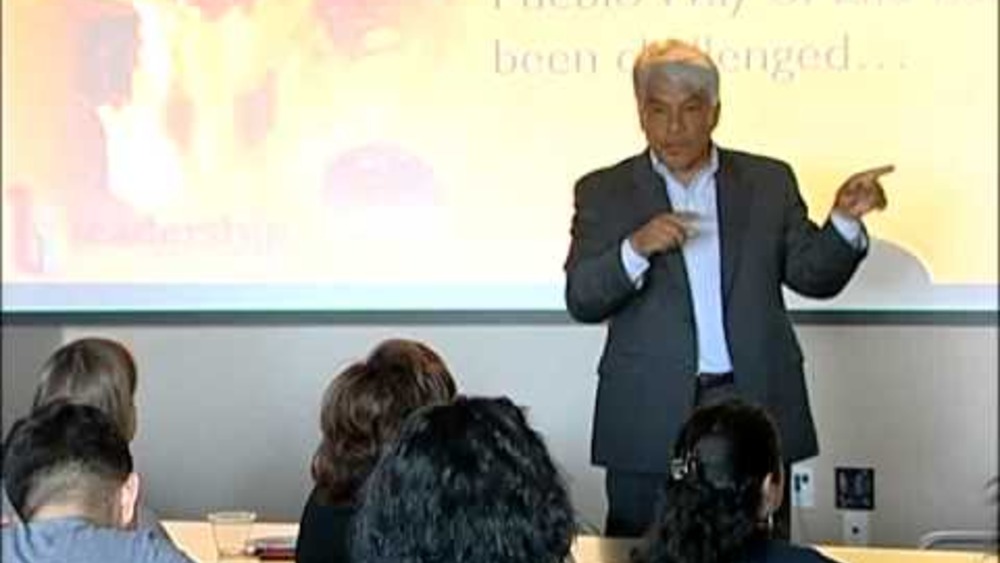
Returning to Our Indigenous Core Values: Our Challenge? Striking a Balance
Regis Pecos is the Chief of Staff, House Majority Office; Co-Director, Leadership Institute; Former Governor, Cochiti Pueblo Regis Pecos is from Cochiti Pueblo, New Mexico. He received his undergraduate degree in Political Science from the Woodrow Wilson School of Public Policy at Princeton…
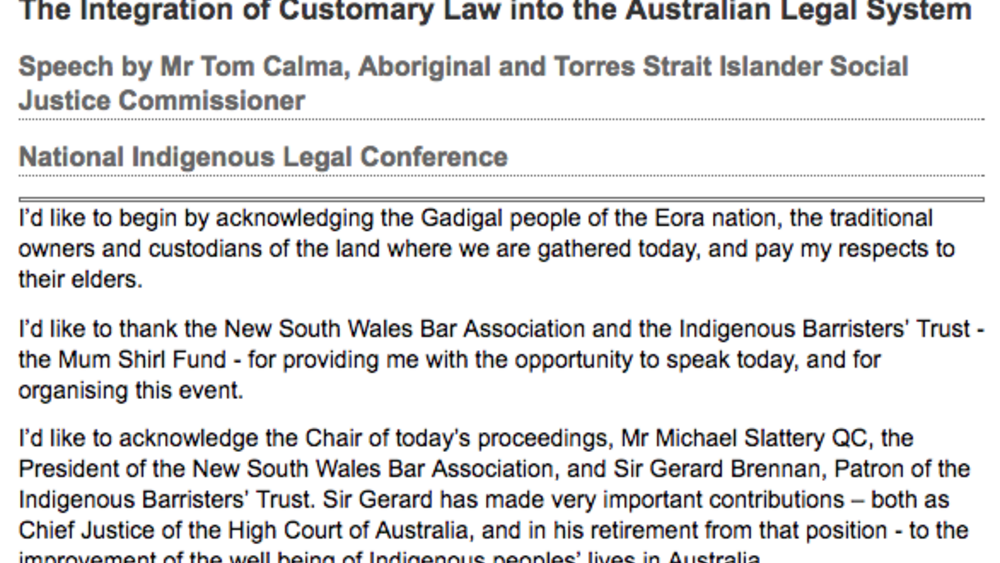
The Integration of Customary Law into the Australian Legal System
The theme of my address this morning emphasizes the important role that Indigenous people have, to take charge of our own destinies. The maintenance and integration of Aboriginal customary law is an essential part of this. It cannot be repeated often enough that a legal system must reflect the…
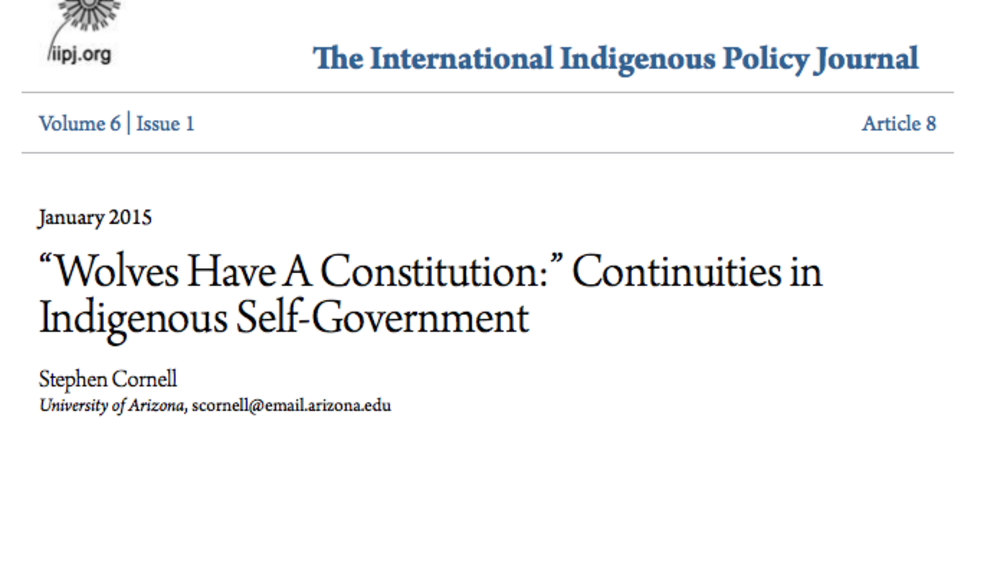
Wolves Have A Constitution: Continuities in Indigenous Self-Government
This article is about constitutionalism as an Indigenous tradition. The political idea of constitutionalism is the idea that the process of governing is itself governed by a set of foundational laws or rules. There is ample evidence that Indigenous nations in North America–and in Australia and New…
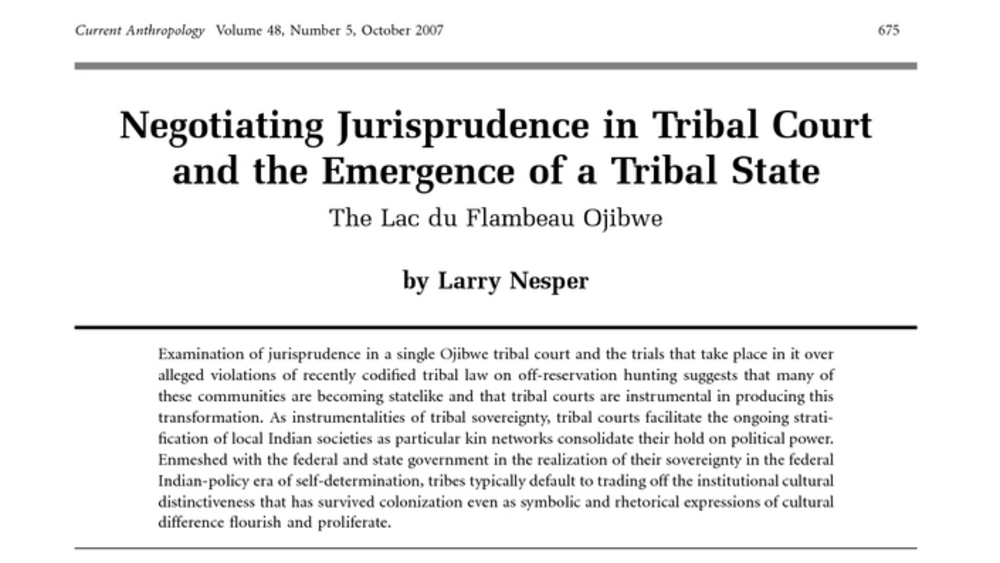
Negotiating Jurisprudence in Tribal Court and the Emergence of a Tribal State: The Lac du Flambeau Ojibwe
The interaction between American Indian activism and changes in federal Indian policy since the 1960s has transformed American Indian tribes from largely powerless and impoverished kinshipâ€based communities into neocolonial statelike entities (Wilkinson 2005).1 Representing themselves as distinct…
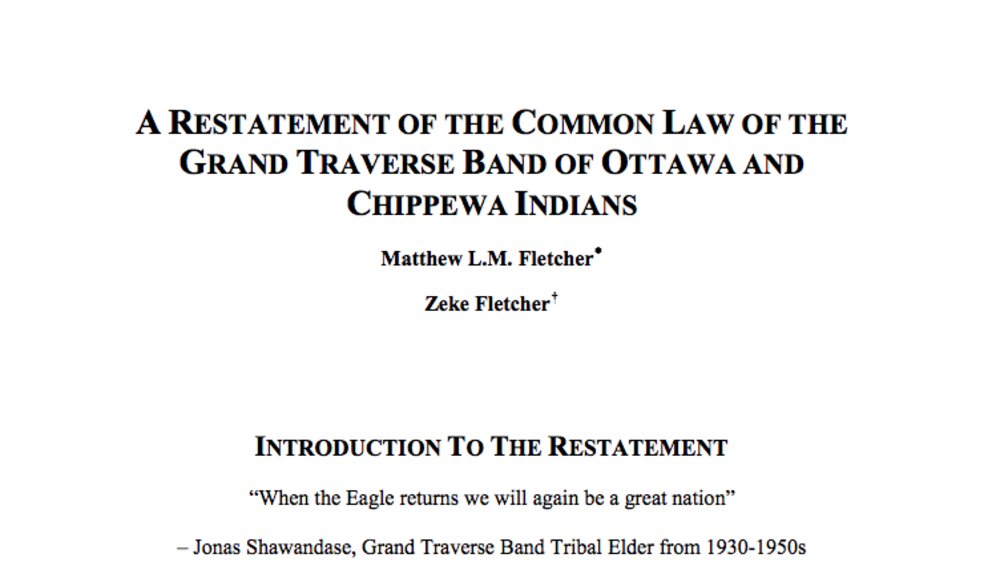
A Restatement of the Common Law of the Grand Traverse Band of Ottawa and Chippewa Indians
From 1872 until 1980 the United States government continually refused to recognize the sovereign status of the Grand Traverse Band of Ottawa and Chippewa Indians (GTB). For example, citizens of the Grand Traverse Band unsuccessfully attempted to regain this government-to-government relationship in…
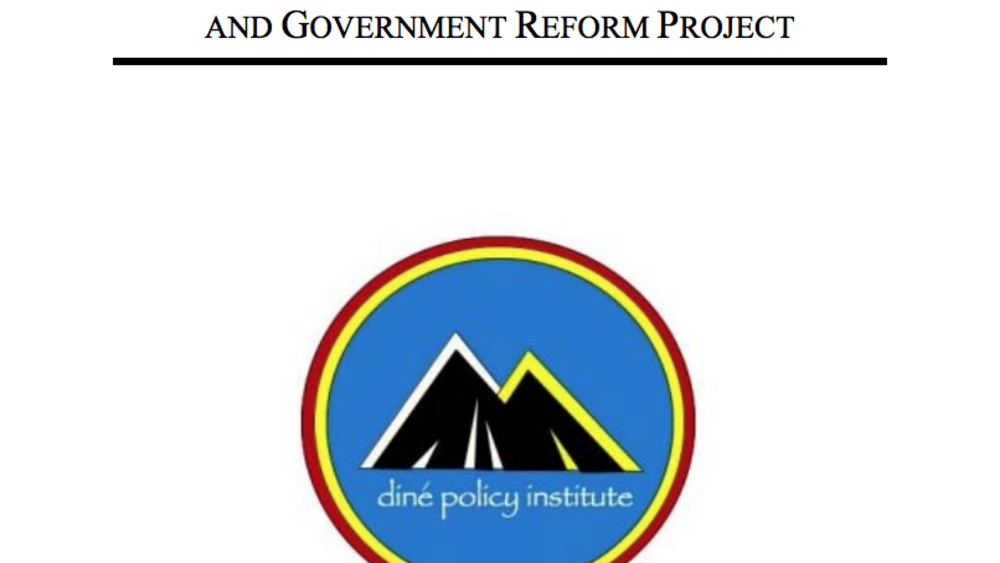
Navajo Nation Constitutional Feasibility and Government Reform Project
This paper will review three important elements related to the constitutional feasibility and government reform of the Navajo Nation. The first section will outline the foundational principles related to constitutionalism and ask whether constitionalism and the nation-state are appropriate…
